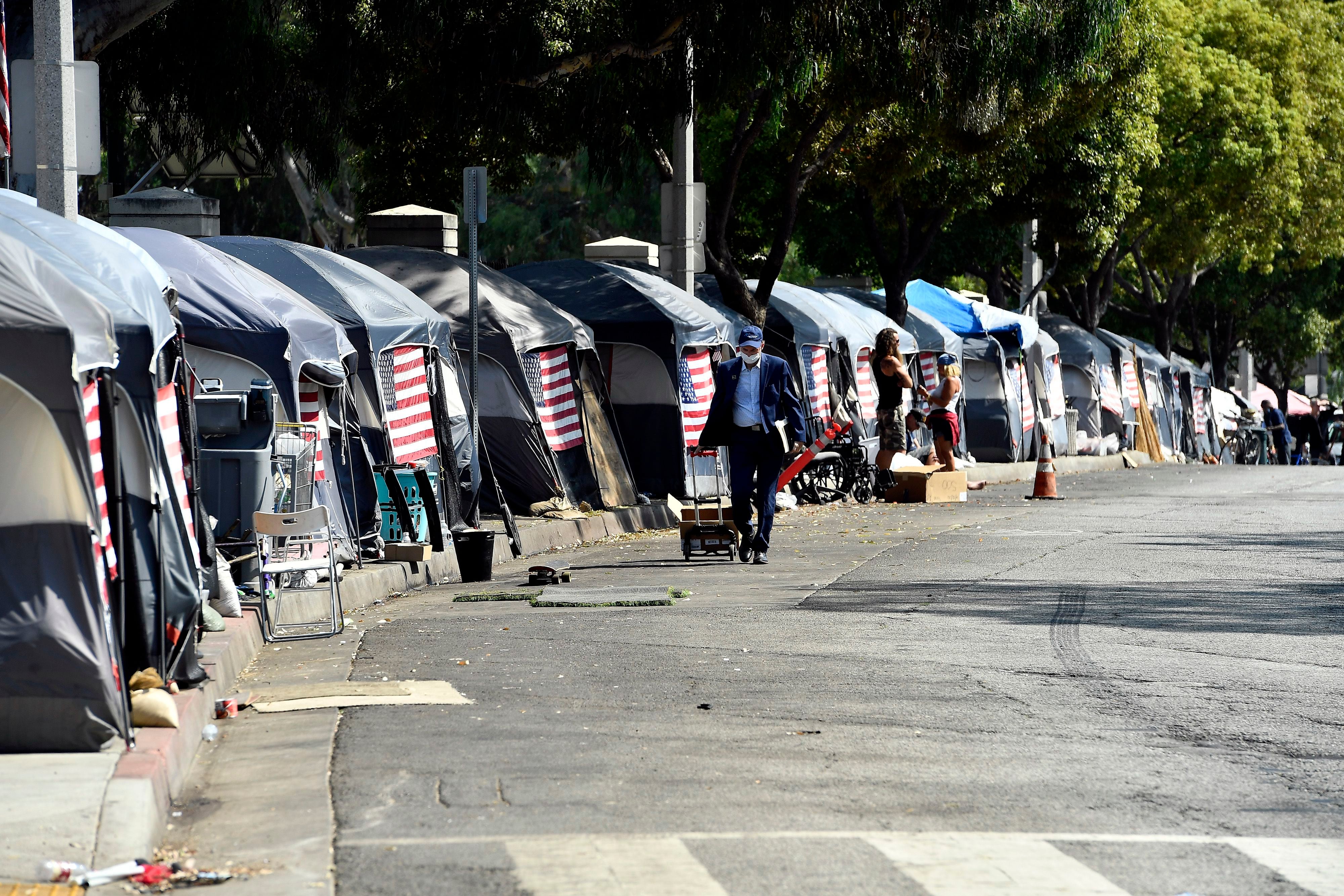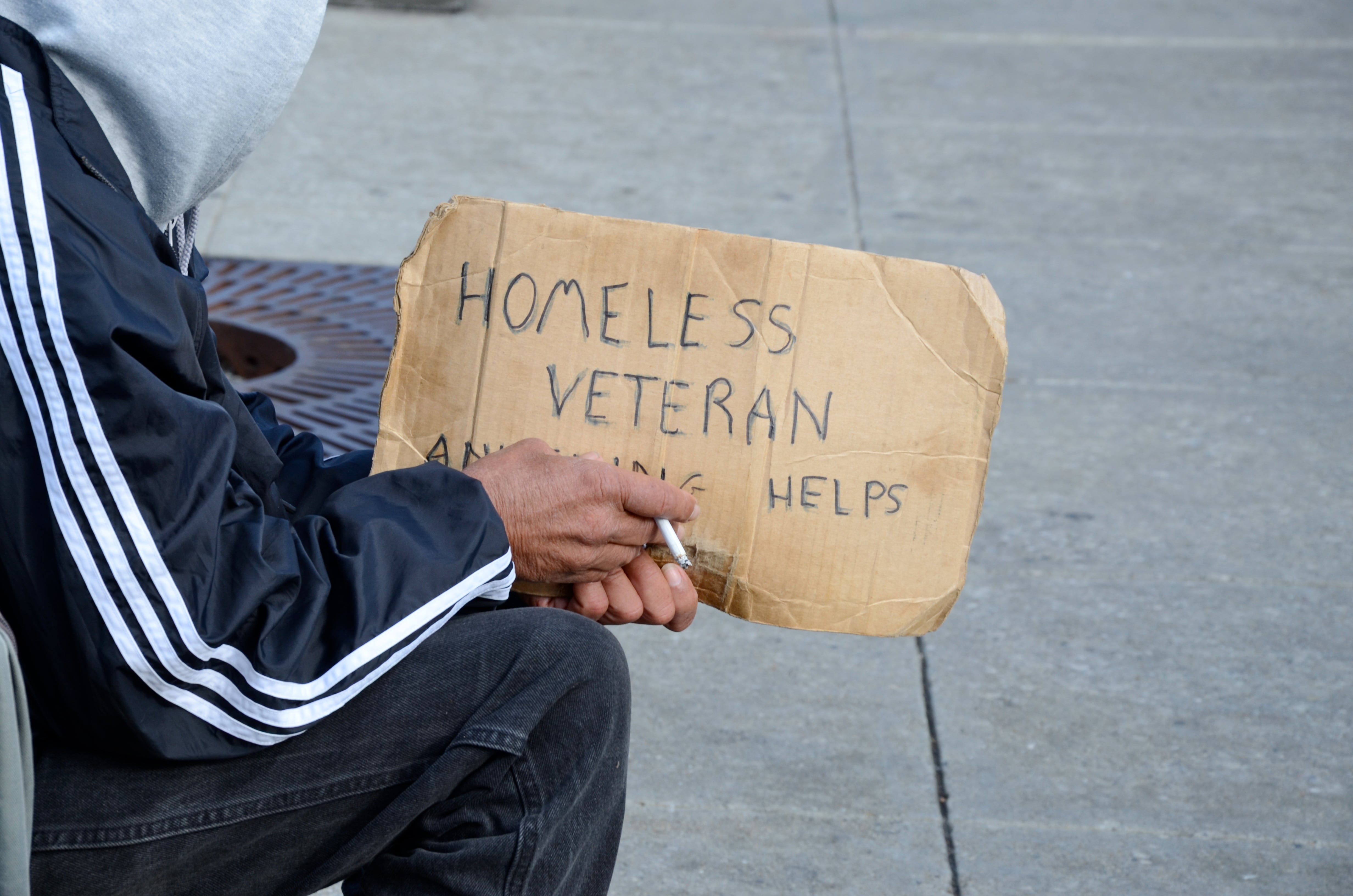Advocates and critics are warning that a recent White House order aimed at getting homeless individuals off city streets and public parks could cause significant problems for efforts to help veterans without stable housing.
They argue that the executive order, signed July 24, would force veterans into institutions without considering their available options and discourage individuals from seeking help for multiple, interrelated issues.
“Veterans fought for this country,” officials from the National Coalition for Homeless Veterans said in a statement on Friday. “They have earned the dignity of a hand up in the way of investments in housing, mental health, and substance abuse treatment, and additional supportive services — not surveillance and detention.”
President Donald Trump’s executive order — “Ending crime and disorder on America’s streets” — would allow local officials to remove homeless individuals from public areas and permit those authorities to commit those Americans to drug treatment centers or other public health institutions.
RELATED

“Shifting homeless individuals into long-term institutional settings for humane treatment through the appropriate use of civil commitment will restore public order,” the president’s order states. “Surrendering our cities and citizens to disorder and fear is neither compassionate to the homeless nor other citizens.”
The document also outlines ending support for “housing first” policies, which administration officials argue “deprioritize accountability and fail to promote treatment, recovery, and self-sufficiency.”
Homeless advocates have said that research shows the opposite. They insist that providing stable housing to individuals facing a host of mental health and financial problems gives them more security to clean up other aspects of their lives without worrying about where they will sleep at night.
“This deprives people of their basic rights and makes it harder to solve homelessness,” officials from the National Homelessness Law Center said in a statement shortly after the White House release. “This executive order is rooted in outdated, racist myths about homelessness and will undoubtedly make homelessness worse.”
The Department of Housing and Urban Development’s annual point-in-time count conducted in early 2024 found roughly 33,000 veterans living on the street without stable housing, a reduction of about 2,700 individuals from the 2023 count.
That number is less than half the estimated 74,000 homeless veterans nationwide in 2010, when then-President Barack Obama announced a federal government goal of ending veteran homelessness.
But some areas — in particular, Los Angeles — have struggled to reduce those totals further in recent years. Advocates have pushed for more resources and fewer restrictions for community groups, but conservatives have questioned whether more funding will produce continued results.
Officials from NCHV warned that involuntary hospitalization and institutionalization of homeless individuals instead of relying on community coordination of care may actually worsen the problem.
“For veterans — many of whom live with service-connected trauma, post-traumatic stress disorder or other mental health conditions — forced treatment can retraumatize rather than heal,” they said in their statement.
“Moreover, institutionalization is often more expensive than providing housing and outpatient care and can be traumatic for individuals who are mandated into treatment settings without their consent. Veterans deserve access to voluntary, trauma-informed care in community settings, not confinement.”
Trump’s executive order drew immediate condemnation from Democratic critics, who said it was motivated by cost-cutting illusions rather than sound problem-solving policies.
“Hundreds of thousands of veterans rely on the incredibly successful HUD and VA housing assistance programs,” House Veterans’ Affairs Committee ranking member Mark Takano, D-Calif., said. “This directive misdiagnoses the root causes of homelessness – particularly among veterans – and proposes punitive measures that will punish and endanger the very people it claims to help.
“Instead of getting veterans off the street, this misguided approach delays that process and puts handcuffs on those vulnerable veterans. It will exacerbate the homelessness crisis.”
White House and Department of Justice officials have not yet outlined exactly how the new order will be enforced, and when local officials might be able to change their approach to homeless response without legal concerns.
Veterans Affairs officials have not announced any changes in their grant programs or assistance efforts as a result of the new order.
In May, VA Secretary Doug Collins said that officials had begun work on Trump’s ideas for a new “National Center for Warrior Independence” in Los Angeles to provide more housing and employment support for the estimated 3,000 homeless veterans living there. He also promised continued focus on the issue in coming months.
Leo covers Congress, Veterans Affairs and the White House for Military Times. He has covered Washington, D.C. since 2004, focusing on military personnel and veterans policies. His work has earned numerous honors, including a 2009 Polk award, a 2010 National Headliner Award, the IAVA Leadership in Journalism award and the VFW News Media award.





